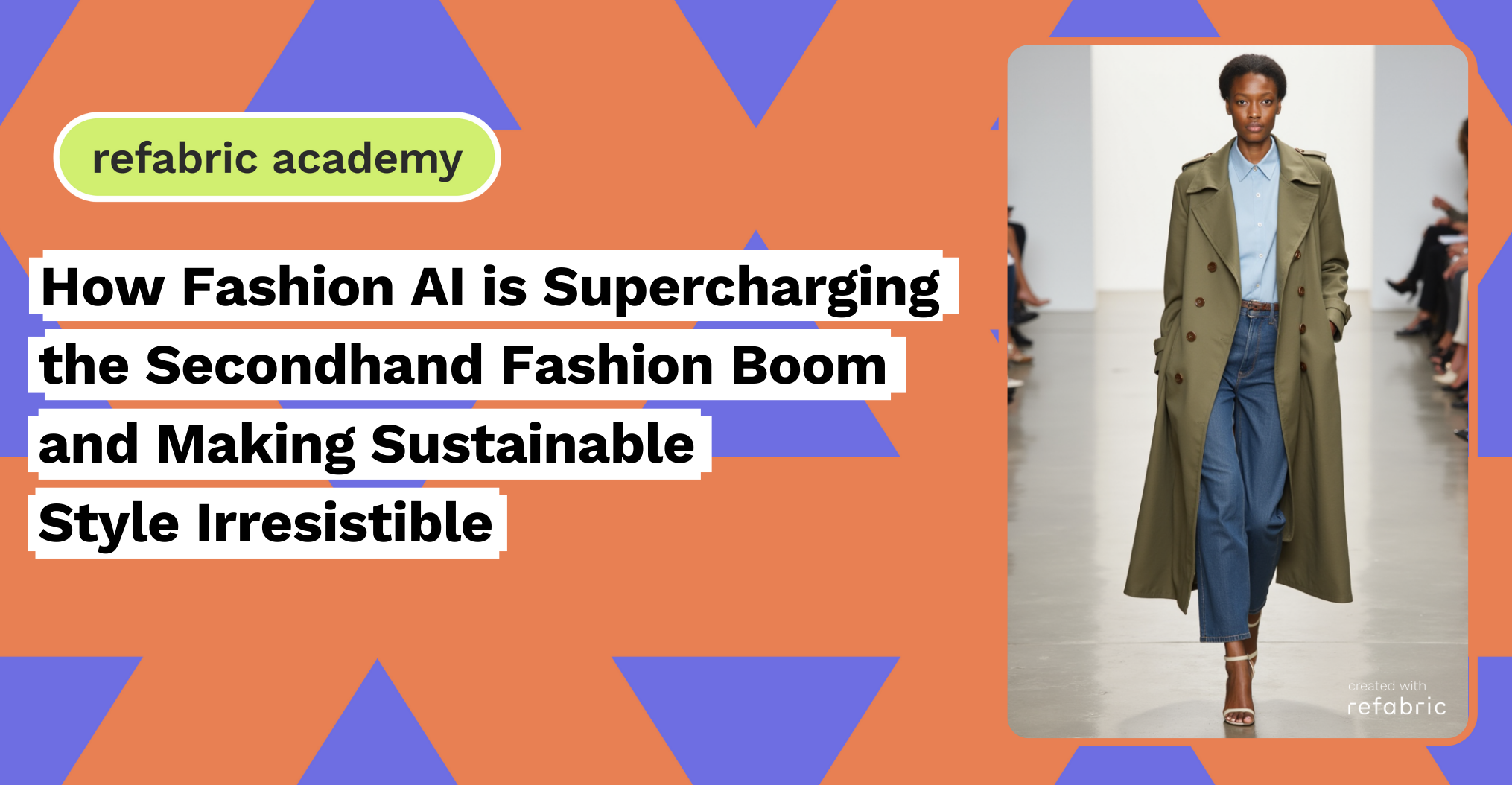Fashion AI is rapidly transforming the secondhand fashion market, turning what was once a niche, sustainability-focused segment into a tech-powered, mainstream shopping experience. By leveraging advanced algorithms and machine learning, fashion AI is not only improving how users search for items but also revolutionizing the way consumers engage with preloved fashion. The result? A smarter, more personalized, and much more enjoyable secondhand shopping experience.
Smarter Search, Better Results: How Fashion AI Makes Thrifting Easier
One of the biggest hurdles in secondhand shopping is the time it takes to sift through thousands of unique listings. Traditional filters like size, color, and brand often fall short when it comes to matching individual style preferences. That’s where fashion AI comes in.
AI-powered tools are enabling platforms like ThredUp, Depop, and Poshmark to create intuitive search experiences. Instead of simply searching for “black dress,” users can now search using natural language or reference looks from celebrities and influencers. AI systems then surface relevant pieces from vast secondhand inventories, making the process quicker and far more aligned with a user’s personal taste.
Personalized Styling and Outfit Curation
Beyond smarter search, fashion AI is enhancing secondhand fashion through personalized styling. For instance, ThredUp uses AI to offer outfit suggestions based on current trends and even celebrity-inspired looks. These recommendations take into account previous user behavior, preferred styles, and browsing history to suggest cohesive outfit ideas, all sourced from secondhand items.
This not only simplifies the styling process but also makes secondhand shopping feel aspirational and fashionable rather than simply frugal. In doing so, fashion AI helps shift the perception of thrift shopping from something practical to something desirable.
Fashion AI and Sustainability: A Powerful Partnership
At the heart of the secondhand fashion movement is sustainability. By extending the lifecycle of garments, secondhand platforms reduce demand for new production, ultimately cutting down on waste and emissions. Fashion AI amplifies this impact by making sustainable choices easier and more attractive for consumers.
AI-driven platforms can forecast trends and predict demand, helping resale businesses optimize inventory and avoid overstock. Additionally, AI can aid in quality control, helping authenticate luxury goods and flag counterfeit or damaged items. This builds trust and credibility, key elements for secondhand fashion platforms hoping to scale.
And with the mindset shift already in motion, consumer behavior is catching up: A recent study showed that more people are prepared to buy secondhand than ever before, 58% last year, up 6 percentage points on 2023. This increase highlights not only growing sustainability awareness but also increased confidence in secondhand platforms, thanks in part to fashion AI tools making the experience easier and more rewarding.
The Future of Resale is AI-Powered
As the resale market continues its meteoric rise, projected to grow 3X faster than the overall global apparel market, fashion AI will remain a crucial driver. From virtual try-ons to automated pricing tools and digital wardrobes that track resale value, we’re just scratching the surface of what AI can offer.
Emerging startups and established players alike are now investing in AI to personalize experiences, recommend eco-conscious swaps, and even offer styling bots trained on vintage fashion archives. The goal is to blur the lines between secondhand and first-hand experiences, ultimately creating a seamless, satisfying shopping journey powered by technology and guided by sustainability.
By addressing the key pain points of secondhand shopping, search difficulty, limited personalization, and uncertainty about quality, fashion AI is elevating the resale market to new heights. What was once a slow, sometimes frustrating hunt is now a sleek, curated, and inspiring experience.
As technology continues to advance, fashion AI will become even more central to how consumers shop for preloved clothing. It’s not just about giving old clothes a second life, it’s about giving shoppers a smarter, more sustainable way to love fashion.
